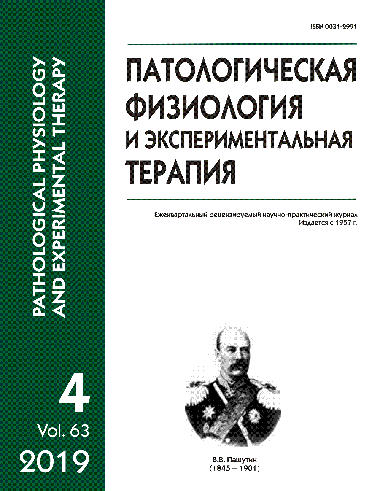Prevention of heparin-associated massive intraoperative bleedings by systemic administration of fibrin monomer in experiment
Abstract
The research objective was to study the ability of fibrin monomer to prevent severe intraoperative blood loss associated with administration of unfractionated heparin in controlled liver injury. Methods. Hypocoagulation was induced in chinchilla rabbits with unfractionated heparin (150 U/kg). Intraoperative bleeding was prevented by administration of fibrin monomer (FM, 0.25 mg/kg, i.v.) one hour prior to the injury and of protamine sulfate (PS, 1.5 mg/kg, i.v.) 10 min prior to the injury. Following the liver injury, blood loss was assessed as percentage of circulating blood volume and the blood loss rate (mg/s). Platelet counts, aPTT, PT, TT, fibrinogen level, antithrombin III activity, and parameters of blood rotation thromboelastometry were analyzed. Results. The volume of blood loss was 5.1 times and 4.0 times less, respectively, after the FM and PS administration during heparinization compared to the placebo group treated with the same anticoagulant. However, FM affected neither coagulogram indexes (no visible hemostasiological effect) nor thromboelastogram while the use of PS as an antidote for heparin was associated with normalization of thromboelastometric data and correction of hypercoagulative changes in aPTT, PT, TT. Conclusion. FM at a dose of 0.25 mg/kg reduced severity of posttraumatic bleeding induced by heparin inhibition of coagulation with no visible signs of hemostatic balance recovery.






